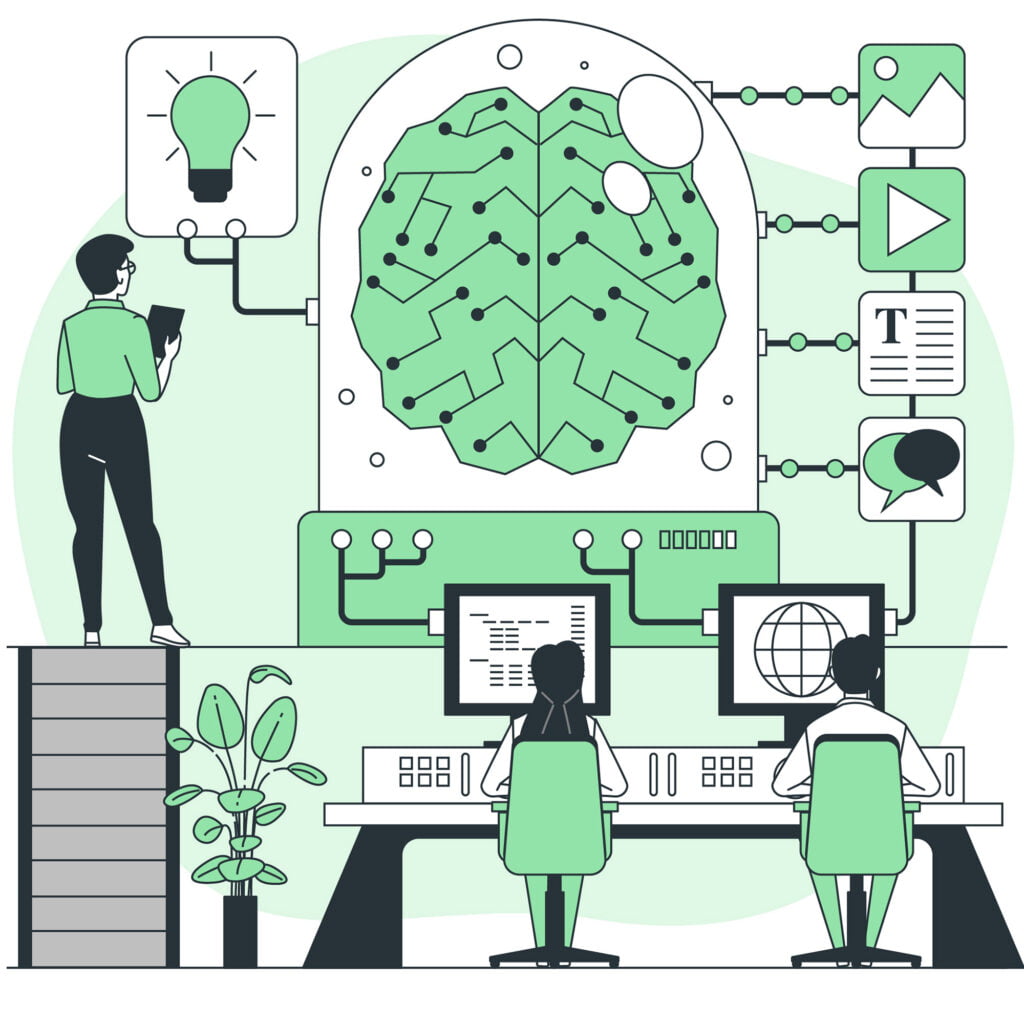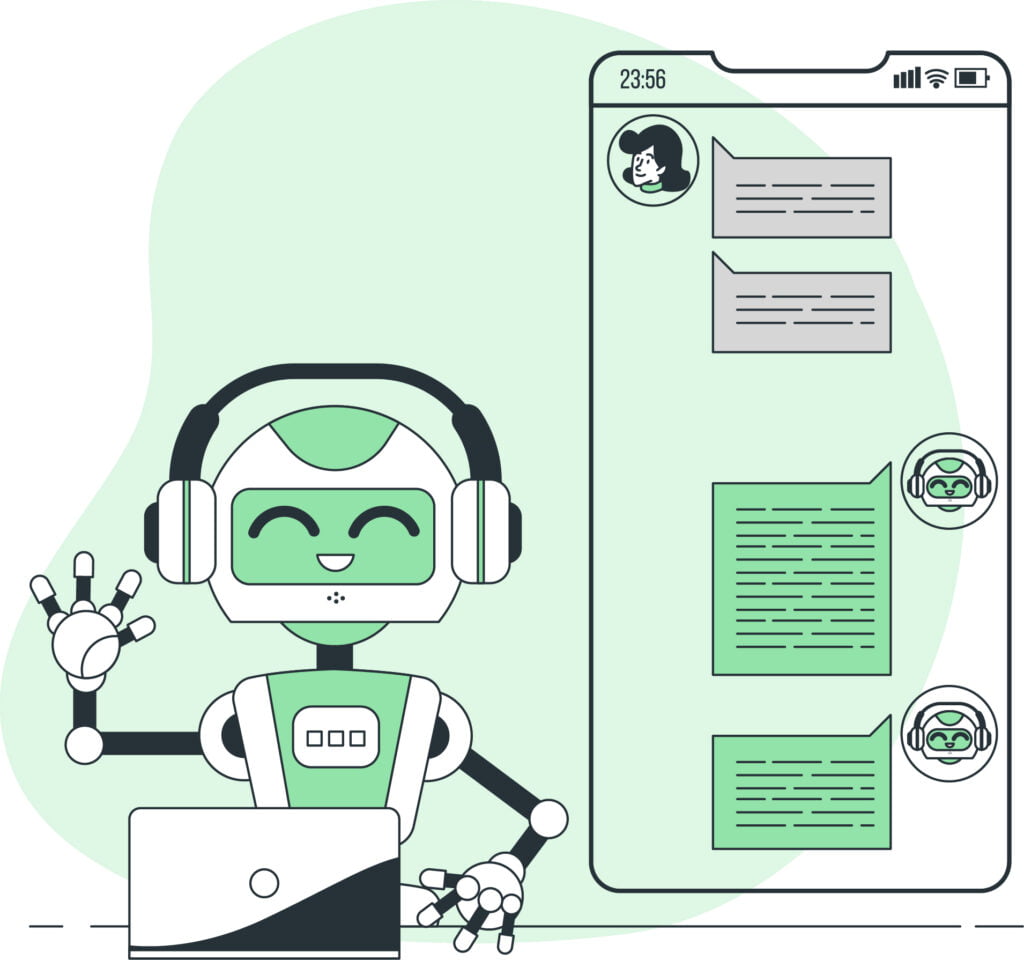Artificial intelligence (AI) - is a technology that allows computers to imitate human intelligence. AI systems are designed and trained to perform tasks that require human judgment, thought, and understanding. The main goal is to create systems that can think, act, solve problems and even learn based on the collected data without direct human intervention.

What is artificial intelligence?
The field of artificial intelligence includes:
- Machine learning: AI learns from data by analyzing and identifying patterns to improve.
- Deep learning: It is a specialized part of machine learning that aims to learn complex data structures and insights.
- Natural language processing (NLP): The ability of AI to understand, interpret and generate natural human language.
Applications of artificial intelligence include:
- Automation: AI can be used to automate processes, for example in industry, logistics or customer service.
- Problem solving: AI can analyze data and make decisions, and sometimes even improve the quality of its decisions over time.
- Prognostics: Using pre-collected data, AI can predict trends and findings in various fields.
The versatility of artificial intelligence opens up a wide range of possibilities and applications, where the technology is becoming a key driver of innovation in all industries.
How is artificial intelligence used?
Artificial Intelligence (AI) is used in various fields and processes that require decision-making, analysis and thinking. Some of the main ways in which AI is used include:
The most popular payment methods:
- Healthcare and medicine: AI systems are used to diagnose diseases, predict the course of diseases, analyze medical tests and even assist surgeons during operations.
- Finance and economics: Banks, investment funds and economists use AI to predict financial performance, optimize investments and identify risk factors.
- Marketing: Artificial intelligence in marketing [GUIDE] used to better understand customer needs, analyze behavioral patterns, tailor marketing campaigns and even provide personalized offers.
- Automation and industrial processes: AI controls automated production processes, efficiently manages supply chains and optimizes logistics.
- Transport and logistics: Transportation companies are using AI machine learning to predict road conditions, improve route efficiency, and even optimize traffic flow in cities.
- Law enforcement and security: AI is used to identify potential areas of crime, analyze large amounts of data, and even predict potential threats.
The use of artificial intelligence in various fields is rapidly growing and evolving to improve efficiency, simplify processes, and help various industries operate more efficiently and innovatively.

Advantages and challenges of artificial intelligence
Advantages:
Efficiency and speed: Artificial intelligence can complete tasks faster, optimize processes and reduce the time required to complete tasks.
High data processing potential: AI can efficiently analyze large amounts of data and extract relevant information, enabling businesses and organizations to make better decisions.
Continuous improvement: The process of machine learning allows artificial intelligence to continuously improve and adapt to new information and situations.
Automation options: AI can automate various tasks and processes, allowing people to focus on creative or more complex tasks.
Challenges:
Ethics and privacy issues: The use of artificial intelligence raises important questions regarding data privacy, ethics and legal aspects.
Transparency of the decisions made: Decisions made by AI algorithms can be complex and uncertain, so it is important to ensure transparency and explanation.
Workplaces: Automation and AI can replace traditional jobs or require new skills and training.
Lack of quality data: Artificial intelligence requires high-quality, accurate data. If the data is inaccurate or not properly processed, it can lead to false results.
The advantages of artificial intelligence provide opportunities to use the technology more effectively in various fields, but when faced with challenges, the ethical, legal and social issues related to it must be carefully addressed.
How to use artificial intelligence?
Create clear goals: Define clear goals and needs that you want to solve with AI. These can be goals for automation, data-driven decision making, improving customer service efficiency, etc.
Choose the right platform or tools: Choose the platform or tool that meets your needs. Many platforms offer AI features and their use can be tailored to specific needs.
Collect and process data: Artificial intelligence requires quality data. Collect, organize and store data for use in training and analysis.
Train the system: Train artificial intelligence using collected data. This can be a machine learning or deep learning process depending on the framework chosen.
Adapt to the needs of the company: Start applying artificial intelligence to specific areas that will help you optimize processes, decision making or customer service.
Monitor and improve: Monitor the use of artificial intelligence and analyze the results. It is also necessary to continuously improve the system based on the obtained results and feedback.
Using artificial intelligence means not only choosing the right technologies, but also effectively using available data and constantly monitoring and improving system performance for maximum benefit.
Learn more about artificial intelligence
You can find more information in our article the use of artificial intelligence in Lithuanian marketing or Useful information on the page.

